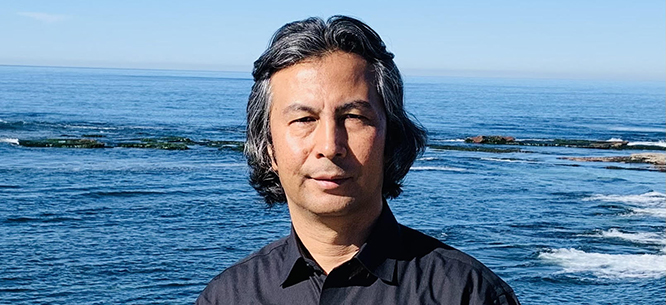The U.S. ambassador to the U.N. Human Rights Council called on China on Tuesday to implement recommendations made by the U.N.’s human rights office in a two-year-old report issued and to release Uyghurs and others unjustly detained in Xinjiang.
American diplomat Michèle Taylor also demanded that China clarify the fate and whereabouts of missing family members and facilitate safe contact and reunion during a speech at the current Human Rights Council session in Geneva, which runs from Sept. 9 to Oct. 11.
Taylor read the joint statement on behalf of Australia, Canada, Denmark, Finland, Iceland, Lithuania, Norway, Sweden, the United Kingdom and the United States – all members of the Core Group on Xinjiang.
In September 2022, the U.S. and Norway cosponsored a proposal that the Human Rights Council hold a debate on the situation of human rights in Xinjiang, home to roughly 12 million Uyghurs, as a follow-up to a report issued that August by the Office of the High Commission for Human Rights, or OHCHR.
The 46-page report by then-U.N. human rights chief Michelle Bachelet said “serious human rights violations” had been committed in Xinjiang in the context of the Chinese government’s application of counter-terrorism and counter-extremism strategies, and that repression of the Uyghurs and other Turkic minorities there “may constitute international crimes, in particular crimes against humanity.”
But China and its allies on the 47-member Council defeated the proposal in a 19-17 vote, with 11 abstentions.
“Over the past two years, China has had many opportunities to meaningfully address these well-founded concerns,” Taylor said.
“We regret that China has denied the impartial and objective findings and rejected the recommendations of the OHCHR’s assessment,” she said.
RELATED STORIES
UN rights chief calls on China to protect human rights in Tibet and Xinjiang
China ‘gamed’ UN human rights review, experts say
51 nations blast China over violating Uyghurs’ rights
UN human rights chief issues damning report on Chinese abuses in Xinjiang
Earlier this year during China’s Universal Periodic Review – a human rights record review by U.N. member states that occurs every five years – “China rejected many legitimate concerns and dismissively labeled the OHCHR’s assessment ‘completely illegal and void,’” Taylor said.
EU’s statement
Rushan Abbas, executive director of Campaign for Uyghurs, praised the Core Group’s statement because it highlighted “the undeniable atrocities” of arbitrary detention, forced labor and cultural erasure occurring in Xinjiang, as documented by the OHCHR.
“The way the CCP exerts influence in the U.N. is to bury the ongoing genocide, and these findings are deeply troubling,” she told Radio Free Asia, referring to the Chinese Communist Party. “Every day of inaction only prolongs the suffering of Uyghur families.”
“It is essential that the U.N. strengthens its efforts to hold China accountable,” Abbas said.

The U.S.’s statement, along with another by the European Union, coincided with this week’s U.N. General Assembly meeting in New York.
The EU’s delegation to the U.N. Human Rights Council expressed concern over China’s mistreatment of Uyghurs on Tuesday in Geneva, including political re-education camps, mass detentions, widespread surveillance, the use of forced labor, and sexual and gender-based violence in Xinjiang.
“Numerous reports by U.N. treaty bodies and special rapporteurs, and in particular OHCHR’s assessment report on human rights in China’s Xinjiang Uyghur Autonomous Region, confirm that the human rights situation requires the urgent attention of the government of China, U.N. bodies and the human rights system,” the delegation said.
It also noted that the human rights situation in neighboring Tibet “continues to be dire” with compulsory boarding schools for Tibetan children and DNA sampling, and said the EU would closely monitor the safeguarding of the fundamental freedoms, cultural heritage and identity of Tibetans.
The delegation called on China to provide bilingual education in Tibetan and Chinese at all levels of instruction.
“The EU continues to urge China to abide by its obligations under national law, including its own Constitution, and international law, to respect, protect and fulfill the rule of law and human rights for all, including Uyghurs, Tibetans and other persons belonging to national or ethnic, linguistic, religious or other groups and minorities across China,” the delegation said.

At a regular press conference on Wednesday, Chinese Foreign Affairs Ministry spokesman Lin Jian noted that Cuba delivered a joint statement on behalf of nearly 80 countries at the Human Rights Council session in Geneva “in response to the attacks and smears on China’s human rights situation by the U.S. and a handful of countries.”
“They stressed that issues related to Xinjiang, Hong Kong and Xizang are China’s internal affairs,” he said, using the Chinese government’s word for Tibet.
“They spoke against the politicization of human rights issues, the application of double standards and interference in other countries’ internal affairs in the name of human rights,” Lin said.
Edited by Matt Reed.
This content originally appeared on Radio Free Asia and was authored by By Alim Seytoff for RFA Uyghur and Roseanne Gerin for RFA English.
This post was originally published on Radio Free.
























